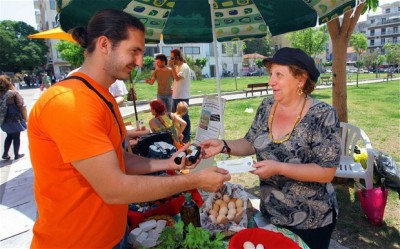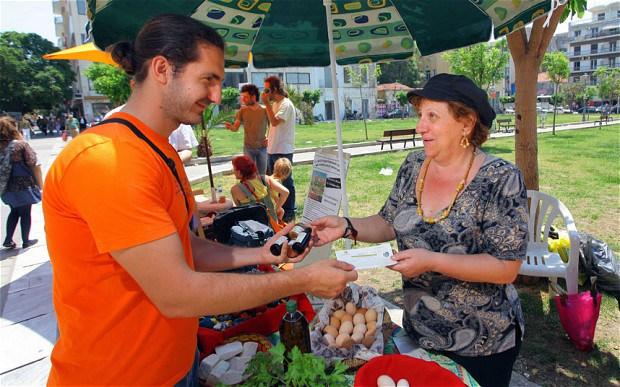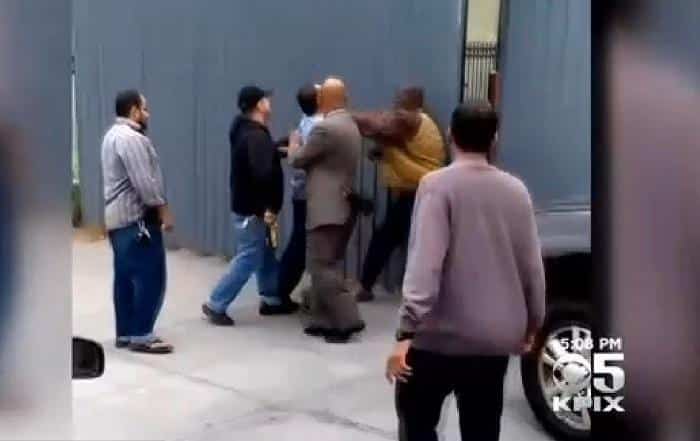
Residents of Greece are so strapped for cash that they have returned to a primitive barter economy.
Farmers, workers and even corporations have begun bartering because of a shortage of cash reminiscent of the Great Depression in the United States, Reuters reported.
“It’s a nightmare,” cotton farmer Mimis Tsakanikas told the news service. “I owe many people money now – gas stations and firms that service machinery. I have to go to the bank every single day, and the money I can take out is not enough.”
Average Greeks can only withdraw 420 Euros ($458.57 US) a week from banks because of currency controls imposed after the nation defaulted on its loans to international creditors. The restrictions have prompted many companies, including PayPal, from ceasing operations in Greece. That means bartering is the only commerce a lot of Greeks can use.
Panagiotis Koutras, a cattle farmer, bought animal feed from a farmer in exchange for clover. Another farmer, Kostas Zavlagas, also has participated in bartering and gave a nearby farmer bales of hay.
For Those Who Desperately Want Out Of The Rat-Race But Need A Steady Stream Of Income
“He is going to pay me back in some sort of product when he is able to, maybe in cheese,” Zavlagas said. “It’s representative of the daily issues that farmers face and why they turn to barter trading to resolve them.”
Many Greek companies are turning to online barter platforms as a means of getting around the banking controls, which make it difficult to transfer money out of Greece.
“Before capital controls, we were reaching out to companies to encourage them to register,” Yiannis Deliyiannis, the chief executive of a barter website called Trade Now, told Reuters. “Now companies themselves are getting in touch with us to get registered.”
Trade Now has conducted 3,000 transactions worth $873,464 since currency controls were imposed on June 29, Deliyiannis estimated. His clients include a car repair shop that exchanged tires “with another firm for a new shower cubicle” and a burglar alarm provider “offering services in return for paper and advertising,” the news service reported.
Another barter platform, Mermix, allows farmers to share heavy machinery in cashless transactions. An olive farmer could trade olive oil for the use of a tractor, for example.
Greek tax authorities are monitoring the situation but they are not taking action against it so far, Reuters reported.
“Barter is not illegal as long as the relevant legal documents are issued for every transaction,” said Christos Kyriazopoulos, the research director at the Greek Finance Ministry’s anti-corruption unit. “But we are closely monitoring the phenomenon, it’s something that we have our eyes on.”
Citizens Afraid Bank Accounts Will Be Seized
Bartering has long been a part of everyday life in Greece, but not to this extent, Haris Lambropoulos, an economist at the University of Patras, told Reuters.
“In the past it was mostly on a family and individual level, but now is expanding due to the developments in the banking sector and capital controls,” he said. “Now it is a more structured and organized phenomenon.”
New Survival Seed Bank™ Lets You Plant A Full Acre Crisis Garden!
One reason why Greeks are bartering is that they no longer trust the nation’s banking system or the tax system. There are popular fears that citizens’ bank accounts could be seized and used to repay lenders. Such a seizure of bank accounts is not an irrational fear; it actually happened on the island of Cyprus in 2013. In 1933 and 1934, during the Great Depression, the US government did something similar and seized US citizens’ gold.
The situation in Greece demonstrates that bartering – even for Americans — could be one of the best survival skills to learn. As Off The Grid News reported, America’s debt-per-capita is far higher than that of Greece — $58,604 per person in the US compared to Greece’s $38,444.
“Of course, a barter economy is something that we shouldn’t aspire to and should be a thing of the past – the last time we had it on a large scale was when we were under occupation,” Christos Stamatis, the founder of Mermix, told the news service.
He compared the current situation in Greece to the German occupation during World War II, when patriots bartered in order to keep from doing business with the Nazis.
Mermix then asked, “But aren’t capital controls a financial form of occupation?”
Do you think bartering could return to the United States? Share your thoughts in the section below:









